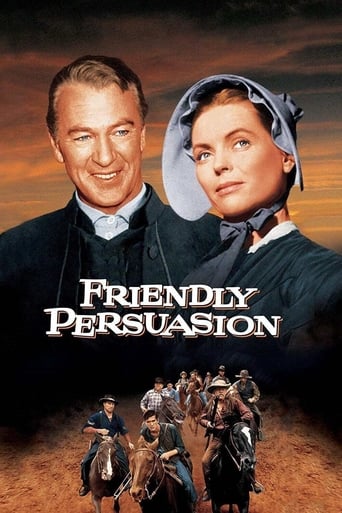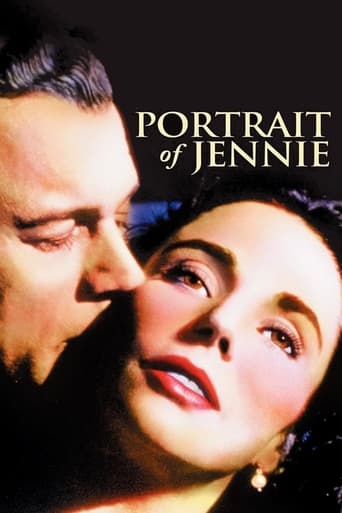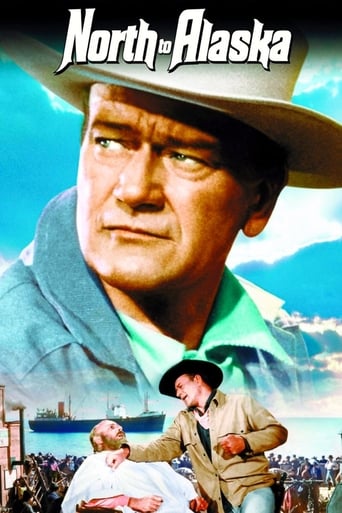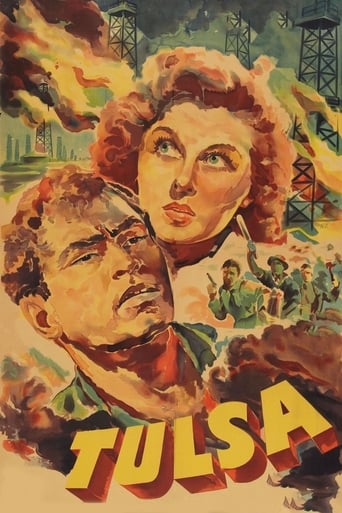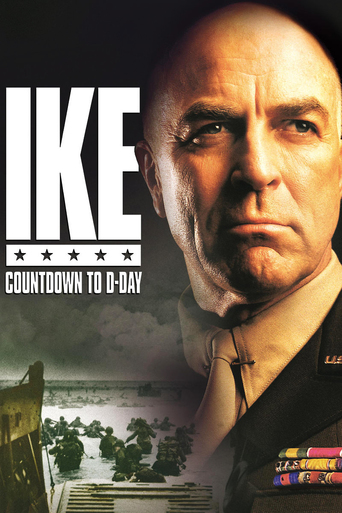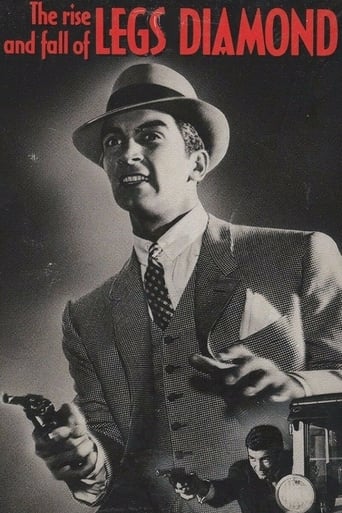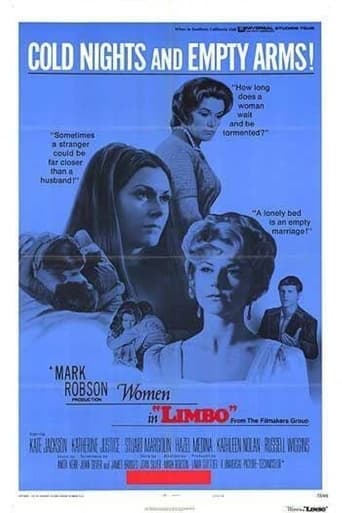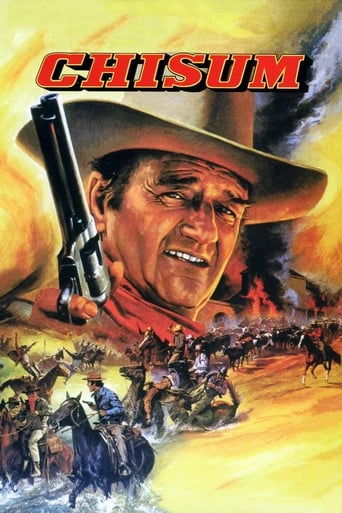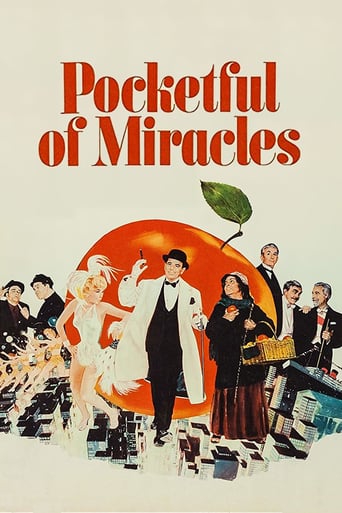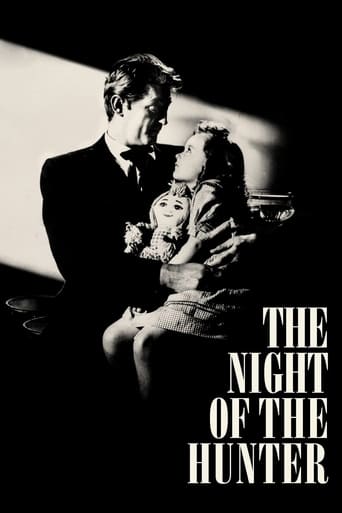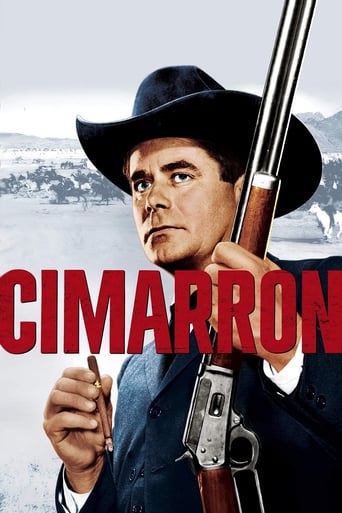


Cimarron
The epic story of a family involved in the Oklahoma Land Rush of April 22, 1889.
-
- Cast:
- Glenn Ford , Maria Schell , Anne Baxter , Arthur O'Connell , Russ Tamblyn , Mercedes McCambridge , Vic Morrow


Similar titles

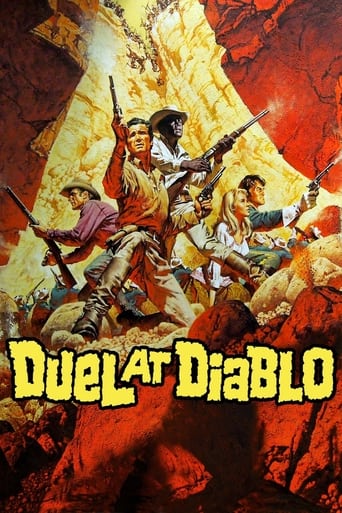
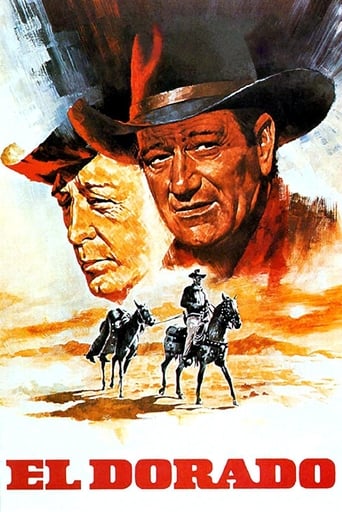
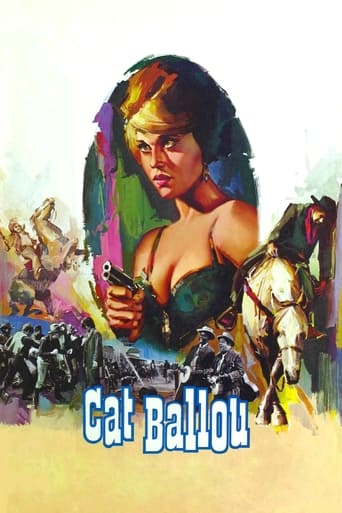
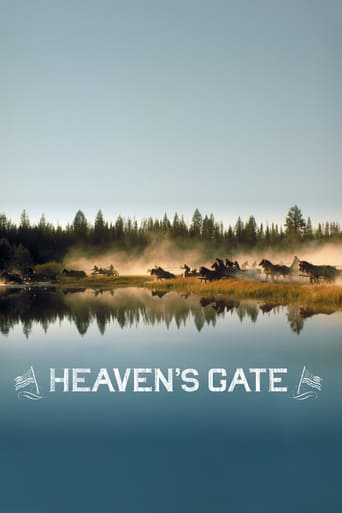
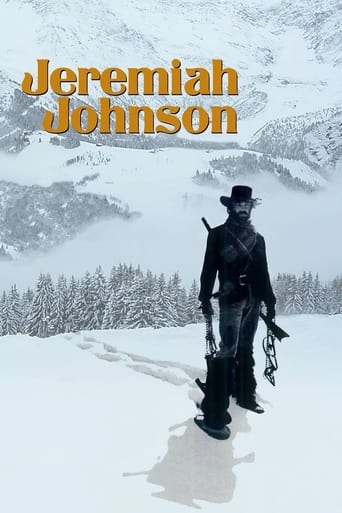
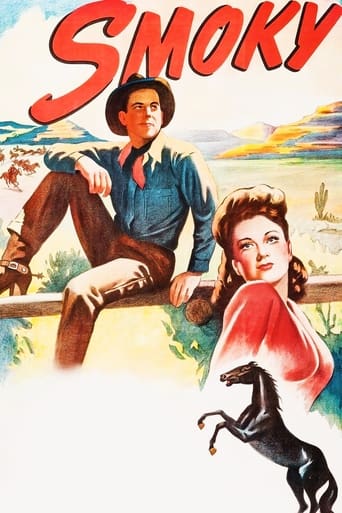
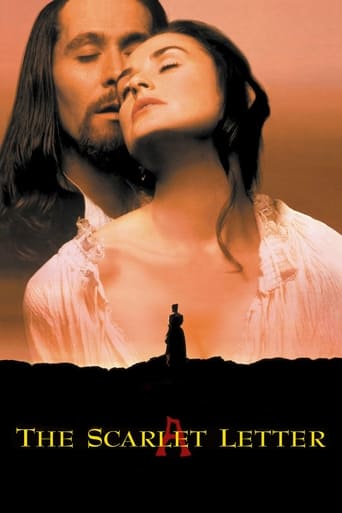
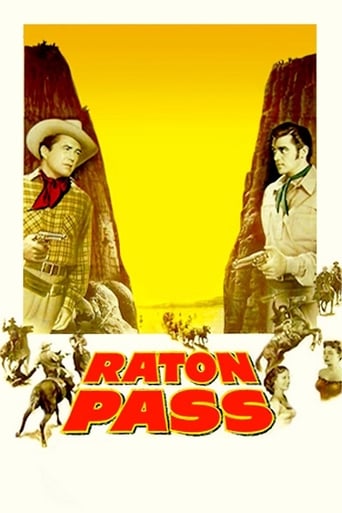
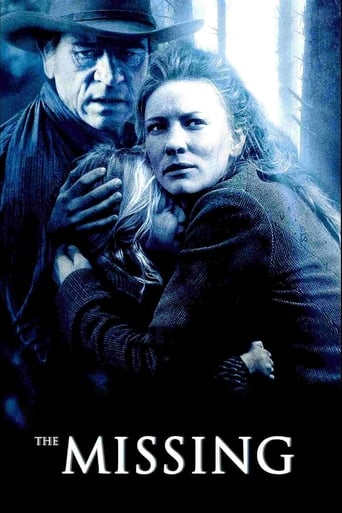
Reviews
Strong and Moving!
How sad is this?
Although I seem to have had higher expectations than I thought, the movie is super entertaining.
The film never slows down or bores, plunging from one harrowing sequence to the next.
I am at a loss to understand why this has been panned by critics, and why it did not do better at the box office. Like other reviewers I found Glenn Ford's depiction of Yancey Cravat far better than that of Richard Dix, in the 1931 version. The land rush was brilliantly done, and the remainder of the cat, eg Harry Morgan, Russ Tamblyn, Anne Baxter and especially Maria Schell were excellent. The music by Franz Waxman was splendidly done, the cinematography brilliant, and the title song very catchy. Generally I am not (with one or two notable exceptions) a fan of westerns, however Cimarron should not be missed. It is a thoroughly enjoyable film.
"Cimarron" is much like two films crammed together. The first half is exciting and enjoyable in many ways and the final portion is dull and seems to drag on forever...and then some! Rarely have I seen a film this different at the start and at the finish. As a result, it's a real mixed bag of a movie...worth seeing but it sure should have been a lot better.When the film begins, Cimarron Cravat (Glenn Ford) is back East to marry a recent immigrant, Sabra (Maria Schell). Her way of life is about to change radically, as she's moving from relative comfort to the wide open Oklahoma Territory in 1889. Cimarron wants to go there for the giant land grant but many things seem to get in the way of his and Sabra's plans. They don't get the land they wanted and soon Cimarron finds himself running a newspaper. He also finds himself a do-gooder--one of the only men willing to stand up to evil. And here is where you start to see cracks in their marriage. Cimarron has a very strong sense of right and wrong but his wife just wants stability and security at all costs. As the years pass, this gulf between them widens and ultimately they both go their separate ways. What's next for the duo?This Edna Ferber saga is basically the recent history of Oklahoma-- from territory to statehood--and all wrapped around the fictional story of the Cravats. At times exciting and interesting (such as when Cimarron repeatedly risks his life to stand up for the local Indians) and others long, long and long!!! And, rather depressing when all is said and done. The first half merits a 9 and the last a 2! Rarely have I ever seen a film this uneven.
This big sprawling epic remake of the Academy Award Best Picture winner Cimarron (1931) was directed by Anthony Mann, based on the same Edna Ferber novel but with a much different screenplay from Arnold Schulman.The first half of the story is focused on Yancey 'Cimarron' Cravat, who seems to know everyone, and starts just before the Oklahoma land rush of 1889 while its second half focuses more on Cravat's immigrant wife Sabra, and other characters. Glenn Ford plays the nicknamed title character, Maria Schell his wife, and various (uncredited) actors play the Cravat's son, named Cimarron, through the 25 year story, during which Yancey is missing for fifteen! Running nearly 2 and a half hours, it's more than 15 minutes longer than the original.Anne Baxter, Arthur O'Connell, Russ Tamblyn, Mercedes McCambridge, Vic Morrow, Robert Keith, Charles McGraw, Harry Morgan, David Opatoshu, Aline MacMahon, and Edgar Buchanan play other significant roles in the film's plot. Mary Wickes, Royal Dano, and Vladimir Sokoloff are among those who also appear.'Cimarron' Cravat (Ford) is an American original, a man who has to be where the action is. Hence, he's taken his new bride Sabra (Schell) to the cusp of what will become Oklahoma, the territory about to be settled in a mad rush by those who want to stake their claim to a 160 acre parcel of government land, "first come, first serve". People have come by covered wagons, and on horseback and bicycles, to participate.The Cravats met and assisted poor Tom Wyatt (O'Connell), his wife Sarah (McCambridge) and their eight daughters on their way to the event. Sarah was also nearly accosted by three ruffians, and former acquaintances of her husband's, the Cherokee Kid (Tamblyn), Wes (Morrow), and Hoss (George Brenlin).At the gathering "festival" the night before, Cimarron seemingly knows everyone they come across including newspaper owner and editor Sam Pegler (Keith), his wife Mavis (MacMahon), their printer Jessie Rickey (Morgan), and photographer Ike Howes (Dano). He also saves and befriends an Indian, his squaw, and their baby while making enemies of Bob Yountis (McGraw), who doesn't think "their kind" should be allowed to participate in the land rush. Cimarron also runs into Dixie Lee (Baxter), who (it will later be learned) was one of the women in his life before Sabra, and a pretty serious one as well.During the spectacle itself, the Indian's wagon is overturned and consequently Pegler is killed because of Yountis's aggressive and intentional actions. Wyatt misses his chance to claim prime land but his wife Sarah is able to claim the barren land just inside the border. For Yancey's part, he's beaten to the land he'd picked out by the only other one who knew about it, Dixie. So, he becomes the editor of the 'Oklahoma Wigwam' when Mavis decides to go back East. Jessie stays on to work for Yancey.The Cravats settle in the town of Osage, where Yountis continues to cause problems for others including being a bad influence on the Cherokee Kid, who was the son of a man that used to employ Yancey but had lost his fortune to the government in an eminent domain type transaction. Sol Levy (Opatoshu) becomes a temporary victim of Yountis's prejudice and influence over the Kid, so Sol's naturally befriended by Yancey, who ends up killing both Yountis and the Kid, in time. One outcome of Yountis's killing is his "adoption" of the Indian's wife (Yountis had killed her husband) and her child at about the same time that the Cravat's son Cimarron is born. Buchanan plays the town's judge, who rejects Yancey's plea to let the Indian child go to school with the other children.As five years pass, Yancey is more interested in being involved in other world changing events, like the opening of Alaska and being one of Roosevelt's Rough Riders, than he is his family. Dixie finds that she has no influence over him either and, when she's unable to convince him to leave Sabra, she returns to her former profession, only this time she's the owner of her own "Social Club" instead of being one of its girls.With Jessie's help and Sol's friendly financing (he'd begun humbly as a storekeeper himself), Sabra grows the newspaper (eventually into a conglomerate of sorts). Meanwhile, due to Yancey's earlier advice, Wyatt finally struck oil, becoming one of the richest men in the country. When Yancey returns, he's appalled that Wyatt has taken advantage of the Indians by purchasing the oil rights for their reservation. He uses the paper to embarrass Wyatt and his friend Senator Rollins (Robert Carson, uncredited) such that Wyatt tries to manipulate Yancey into accepting the state's governorship in order to control him. Naturally, Yancey refuses to kowtow to their wishes, upsetting Sabra and causing him to disappear again.Ten years pass before Sabra learns the fate of her husband, he'd died fighting World War I. Though Wyatt had planned to recognize her as a symbol of pioneer spirit, she insists at the paper's 25th anniversary, with all including her estranged son and his Indian wife (the Cravats had raised in their home) and Mavis in attendance, that the sculptor (Vladimir Sokoloff) recognize Yancey instead.
Though the 1931 version of Edna Ferber's 1929 novel is not any good, yet we make allowances for it owing to the times in which the movie was made. It seems to be trying to say prejudice is bad, but makes its point with stereotypes of African Americans, Jews, and Native Americans, often set up to show how enlightened Yancey is and what a great guy he is for coming their rescue. Yancey is also supposed to be enlightened when it comes to women, hence his defense of Dixie Lee, but this is done at the expense of women like Sabra, making her out to be narrow minded. And so, we handicap the movie for when it was made, making allowances for both the style and content.But when watching the 1960 remake, we lose all patience. To take an extreme example for comparison, we are glad to have "Birth of a Nation" (1915) as a document revealing the racist attitudes of the times, and as such, we watch the movie with fascination. But that does not mean we want the movie remade today, even if we could do it better, so to speak, by making it with sound, in color, and in widescreen.Perhaps the land rush for the Unassigned Lands in Oklahoma in 1889 begged to be filmed in color and in Cinemascope, but that could have been depicted in an entirely different story. Placed within a remake of "Cimarron," however, it is simply wasted. Some of the misogyny is eliminated by simply eliminating Yancey's bigoted daughter and by eliminating the persecution and trial of Dixie Lee. The African American stereotype is avoided by eliminating the boy who sneaked away with Yancey and Sabra early in the 1931 movie. However, Sol Levy is still depicted as the stereotypical Jew who is a helpless victim, which allows Yancey to play the savior.In my review of the 1931 version, I said that Yancey Cravat is an irritating character played by a bad actor, Richard Dix. In this 1960 version, Yancey is played by a much better actor, Glenn Ford, but he is just as irritating as ever, if not more so. However, the 1960 version makes apologies for him by having Sabra tell him she never wants to see him again when he refuses to accept the appointment as governor, instead of simply having Yancey abandon her again the way he did in the 1931 version.The melodramatic death of Yancey in the oilfield is eliminated, with Yancey dying in the First World War instead. A more modestly sized statue of Yancey appears at the end of the 1960 version, though with Yancey still towering over the Native American he is helping up.

